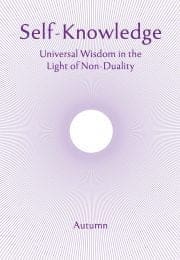Hafiz and Mysticism
The poet Hafiz was probably born between 1320 and 1326 in Shiraz in southern Iran, and died there in 1389. Although much studied and analysed, little more is known about him with certainty. He remains almost totally hidden behind his work. [His poems were collected into the ‘Diwan (anthology) of Hafiz’. The numbers in what follows refer to the edition of Muhammad Qazwini and Qasim Ghani.]
We could assert that he lived to be old, that he was an expert in Quranic studies, that he valued a liberal form of the religion of love above Islamic orthodoxy, without rejecting the latter completely. We do not know for certain whether he was a Sunni or a Shi’ite, for there are some verses in his work that would have been objected to by a strict Sunni and others that would have found no favour amongst strict Shi’ites.
We may suspect, though we do not know for certain, that he was married, and that he mourns the loss of a son in his poems (134). He sometimes declares himself to be a recluse (e.g. 433) and a ‘wearer of wool’ (sign of poverty, though not necessarily of asceticism, 158 and 398), and as poor (145) and as having only one coat (240) and as unable to afford a minstrel since he lacks silver and gold (367). But there is today general agreement that he was not a retired ascetic. Even in old age, he appears to thank Shah Mansur for leaving him in ease and comfort (329). And it is also when he is already old that he expresses shame that he is still ‘dependent on king and minister’ (332).
He also says that in youth he indulged in wine and youthful company (29). However, there are many places where we do not know whether or not he was giving straight autobiography, and many places where we do not know whether he intended his meaning to be taken literally or allegorically or both at the same time. For these reasons we cannot ask how far Hafiz lived up to his spiritual ideals. But we can ask what the spiritual ideals expressed in his poems are.
It has been suggested that only three poems (142, 143, 342) are mystical throughout, and that this is such an insignificant number in proportion to Hafiz’s total output that the remaining scattered mystical utterances should be dismissed as a mere concession to the aristocratic taste of the times. It may be accepted that Hafiz was probably a court-poet and not a monastic spiritual teacher. But it can hardly be denied that his poems were mainly intended to convey spiritual teaching. He has said that every verse of his poetry is a love-song of gnosticism (ma’rifat).
This land lacks mystical vision (ma’rifat);
Send help, O God most High,
That I may find purchasers for my pearls. (252)
Let us rise and give up the religion of show;
Let us buy two cents’ worth
In the shop of gnosticism (ma’rifat). (381)
It may be that for Hafiz mysticism was only one traditional theme among others, and that it does not necessarily follow that he was a practising mystic simply because he excelled at the expression of mystical feeling. But it has been said that those who have loved and understood Hafiz and read his works and practised his teaching, have made his Diwan a text to be placed alongside the Quran and the Mathnawi of Maulana Rumi.
Subscribe or enrol for free guest access to read all of this article and Self-Knowledge online.
Already subscribed or enrolled? Log in:


